Programs
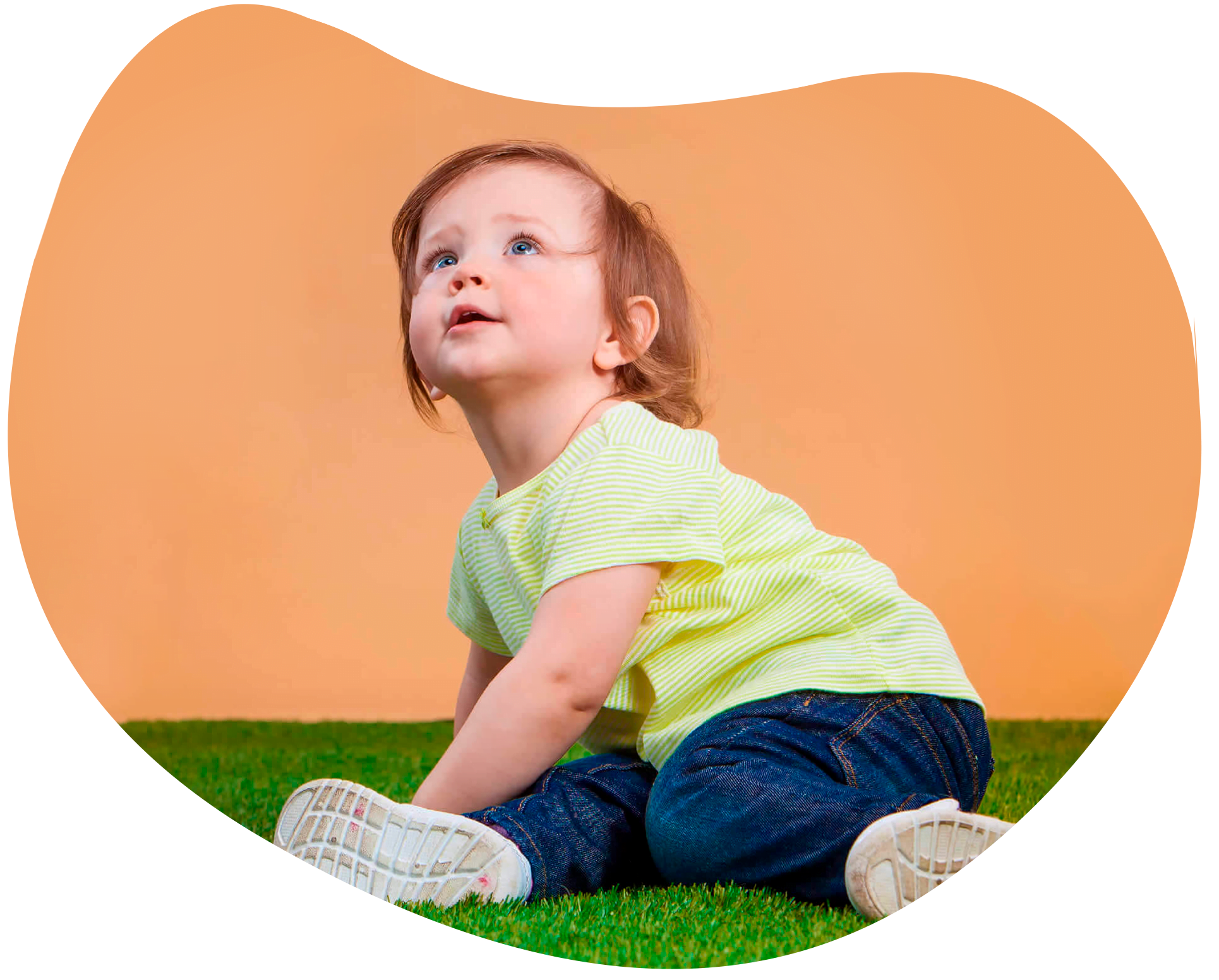
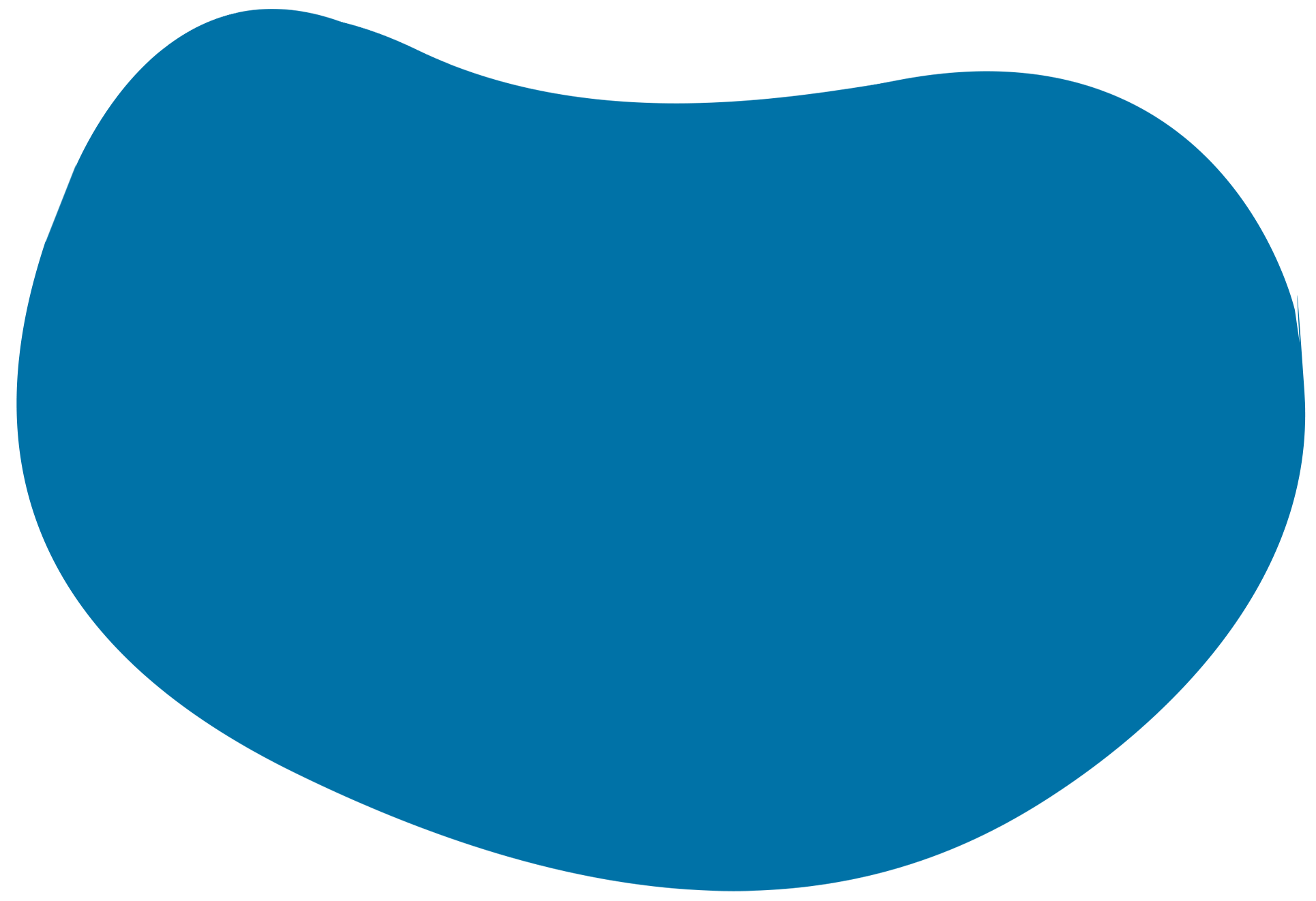
Your baby is one of your most precious gifts and we are honored to be a part of their journey from the very beginning. We ensure a smooth transition to communicating milestone achievements; we’re not a daycare, we’re an extension of your home.
Our infant teachers partner with you to ensure your baby’s developmental needs are met every step along the way. They create predictable routines and nurturing classroom environments that foster social and emotional development.
Through age-appropriate, natural materials inspired by our Reggio Emilia approach, your infant will be introduced to sensory play, art, music, language, and fine/gross motor activities that are documented and shared with you
through our daily app.
At Growing Seeds Academy we believe a child’s work is play. We teach your children age-appropriate lessons, manners, and social skills all through creative and purposeful play. We believe children who enjoy learning at a young age will carry it with them throughout their lives.

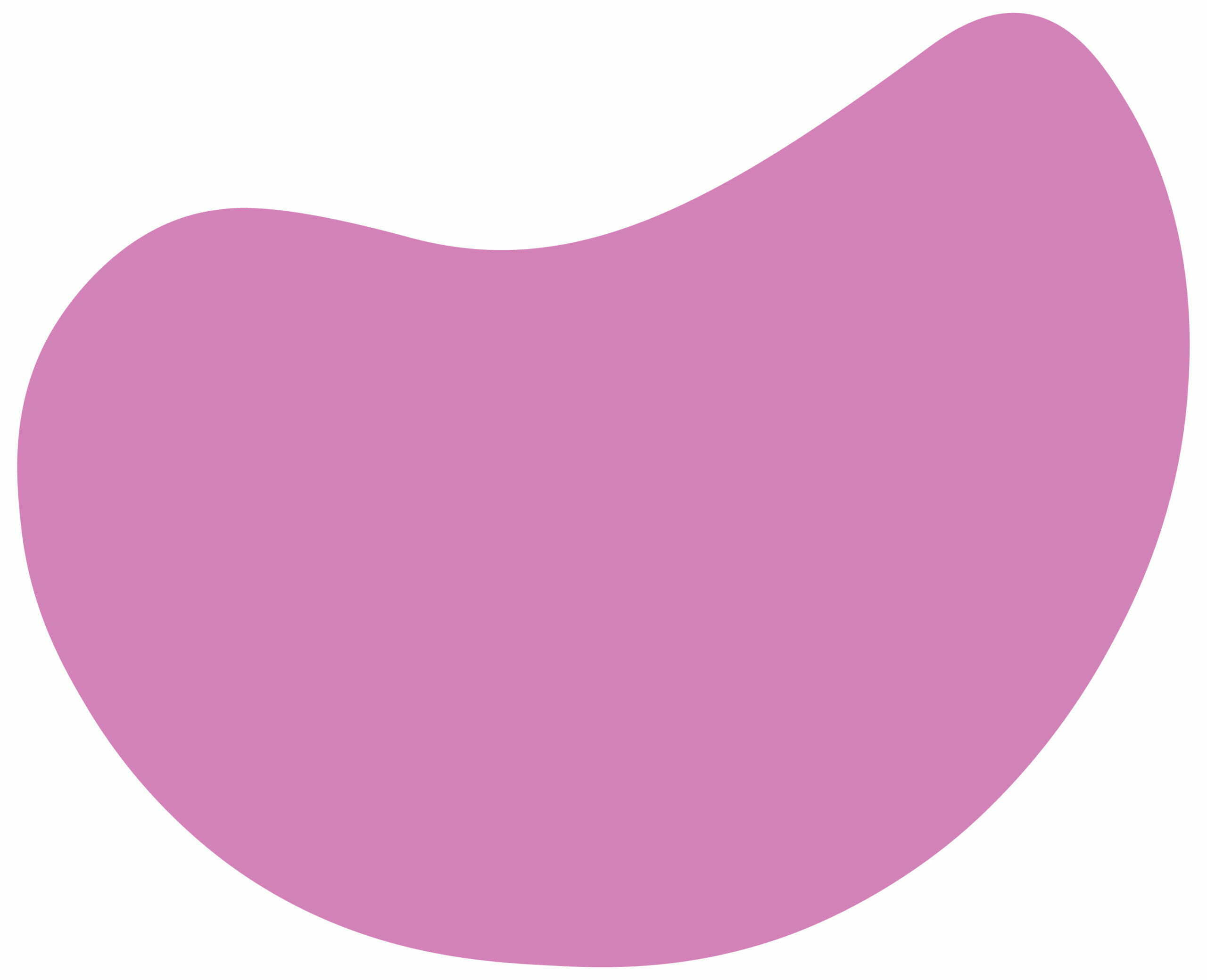
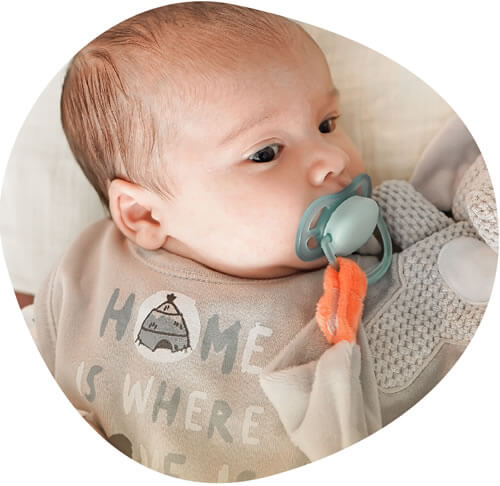
Our curriculum is based on the research of the most
renowned education experts.
Your baby is one of your most precious gifts and we are honored to be a part of their journey from the very beginning. We ensure a smooth transition to communicating milestone achievements; we’re not a daycare, we’re an extension of your home.
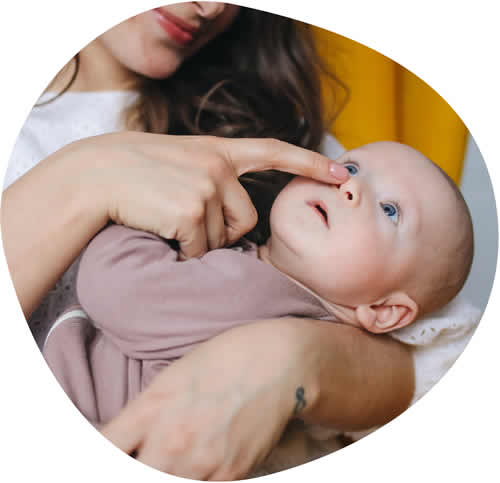
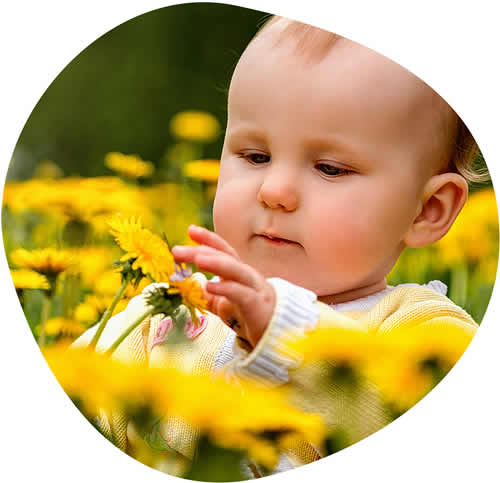
8 – 12 Months
- Sits unsupported for short periods
- Gets to the sitting position without assistance
- Crawls forward on belly
- Assumes hand and knee position
- Creeps on hands and knees
- Gets from sitting to crawling or prone (lying on stomach) positio
- Pulls self up to standing position
- Walks holding onto furniture
- Stands momentarily without support
- May walk two or three steps without support
- Uses pincer grasp
- Bangs two cubes together
- Puts objects into container
- Pokes with index finger
- Tries to imitate scribbling
- Explores objects in many different ways
- Finds hidden objects easily
- Looks at correct picture when image is name
- Imitates gestures
- Responds to simple verbal requests
- Responds to “no”
- Makes simple gestures such as shaking head for no
- Babbles with infliction
- Babbles “dada” and “mama”
- Says “dada” and “mama” for specific people
- Uses exclamations such as “oh-oh”
- Shy or anxious with strangers
- Cries when mother or father leaves
- Enjoys imitating people in play
- Show specific preferences for certain people and toys
- Prefers mother and/or regular care provider over all others
- Repeats sounds or gestures for attention
- Finger-feeds themselves
- Extends arm or leg to help when being dressed
Toddler
Your toddler is on the move and becoming more active and independent as they begin exploring the world around them.
Our Reggio Emilia-inspired curriculum, helps inspire curiosity and imagination in a way that is unique to your toddler’s individual interests.
To do this, our toddler classrooms are designed to encourage purposeful play where our teachers guide your child through age appropriate learning experiences that prepare them with the knowledge they need to be confident as they grow.
Our preschool teachers work to foster skills like listening, counting, writing, and following simple instructions. They also foster skills like pushing and pulling, sorting objects by color and size and stacking objects.


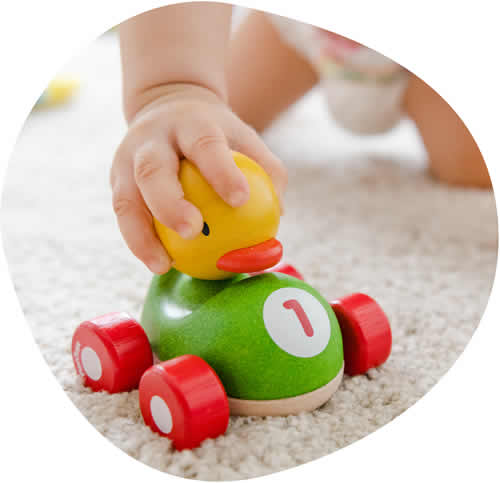
10 – 12 Months
- Carries large toys or several toys while walking
- Scribbles spontaneously
- Pulls toys behind while walking
- Begins to run stiffly
- Turns over container to pour out contents
- Says several single words
- Follows simple one-step instructions
- Repeats words overheard in conversations
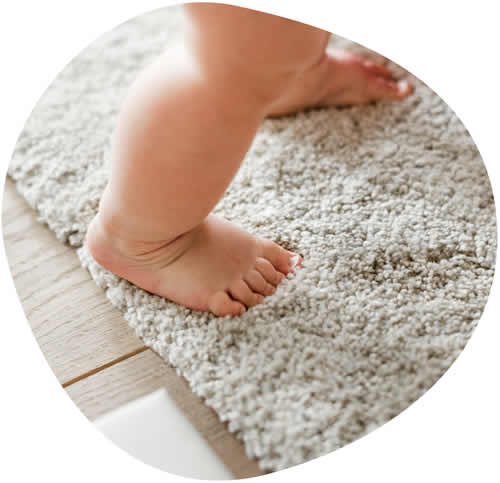
18 – 24 Months
- Walks into ball
- Climbs onto and down from furniture unsupported
- Walks up and down stairs holding on to support
- Building tower of four blocks or more
- Points to object or pictures
- Uses two-word sentences
- Recognizes names of familiar people, objects and body parts
- Walks alone
- Finds objects even when hidden under 2 or 3 covers
- Begins to sort shapes and colors
- Begins make-believe play
- Imitates behavior of others, especially adults and older children
- Increasingly enthusiastic about company or other children
- Demonstrates increasing independence
- Begins to show defiant behavior

To do this, your child’s preschool teacher and our classroom create a nurturing, home-like classroom environment where your toddler is treated as a capable individual, whose opinions, actions and thoughts are respected and valued.
Our Reggio Emilia-inspired, emergent learning curriculum is designed to stimulate the whole child through experiences in math, science, language, drama and music. Language development is rapid at this age, so we also take this opportunity to help increase their vocabulary. All lessons are presented in a way to help develop each
child’s imagination by learning through play.

Development Milestones
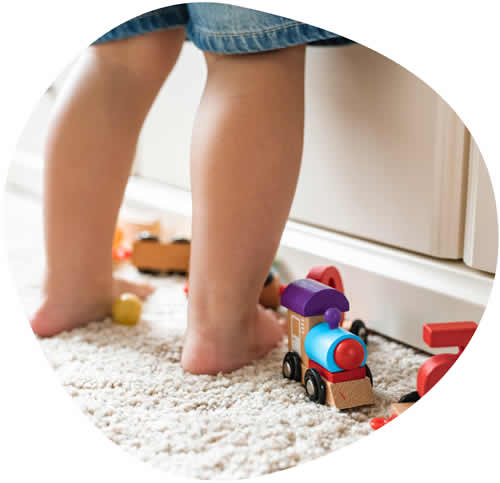
24 – 29 Months
- Runs easily
- Walks down stairs alone, placing both feet on each step
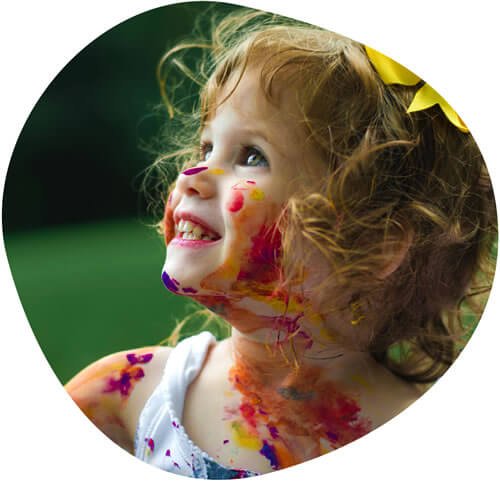
30 – 32 Months
- Matches an object in his hand or room to a picture in a book
- Turns rotating handle
- Climbs well
- Walks up stairs alternating feet with support
- Swings leg to kick ball
- Bends over easily without falling
- Turns book pages one at a time
- Builds a tower of more than six blocks
- Screws and unscrews jar lids, nuts and bolts
- Uses pronouns (I, you, me, we, they)
- Turns rotating handle
- Recognizes and identifies almost all common objects and picture
- Understands the concept of “two”
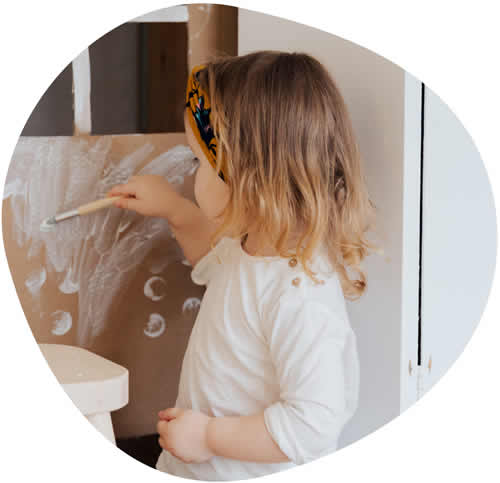
33 – 36 Months
- Pedals tricycle
- By three, separates easily from parents
- Expresses a wide range of emotions
- Objects to major changes in routine
- Makes vertical, horizontal and circular strokes with pen or crayon
- Understands most sentences
- Understands physical relationship (on, in, under)
- Can say name, age and sex
- Strangers can understand most of his/her words
- Plays make believe with dolls, animals and people
- Sorts objects by color
- Completes puzzles with three or four pieces
- Makes mechanical toys work
Pre-school
Your toddler is on the move and becoming more active and independent as they begin exploring the world around them.
Our Reggio Emilia-inspired curriculum, helps inspire curiosity and imagination in a way that is unique to your toddler’s individual interests.
To do this, our toddler classrooms are designed to encourage purposeful play where our teachers guide your child through age appropriate learning experiences that prepare them with the knowledge they need to be confident as they grow.
Our preschool teachers work to foster skills like listening, counting, writing, and following simple instructions. They also foster skills like pushing and pulling, sorting objects by color and size and stacking objects.

Development Milestones
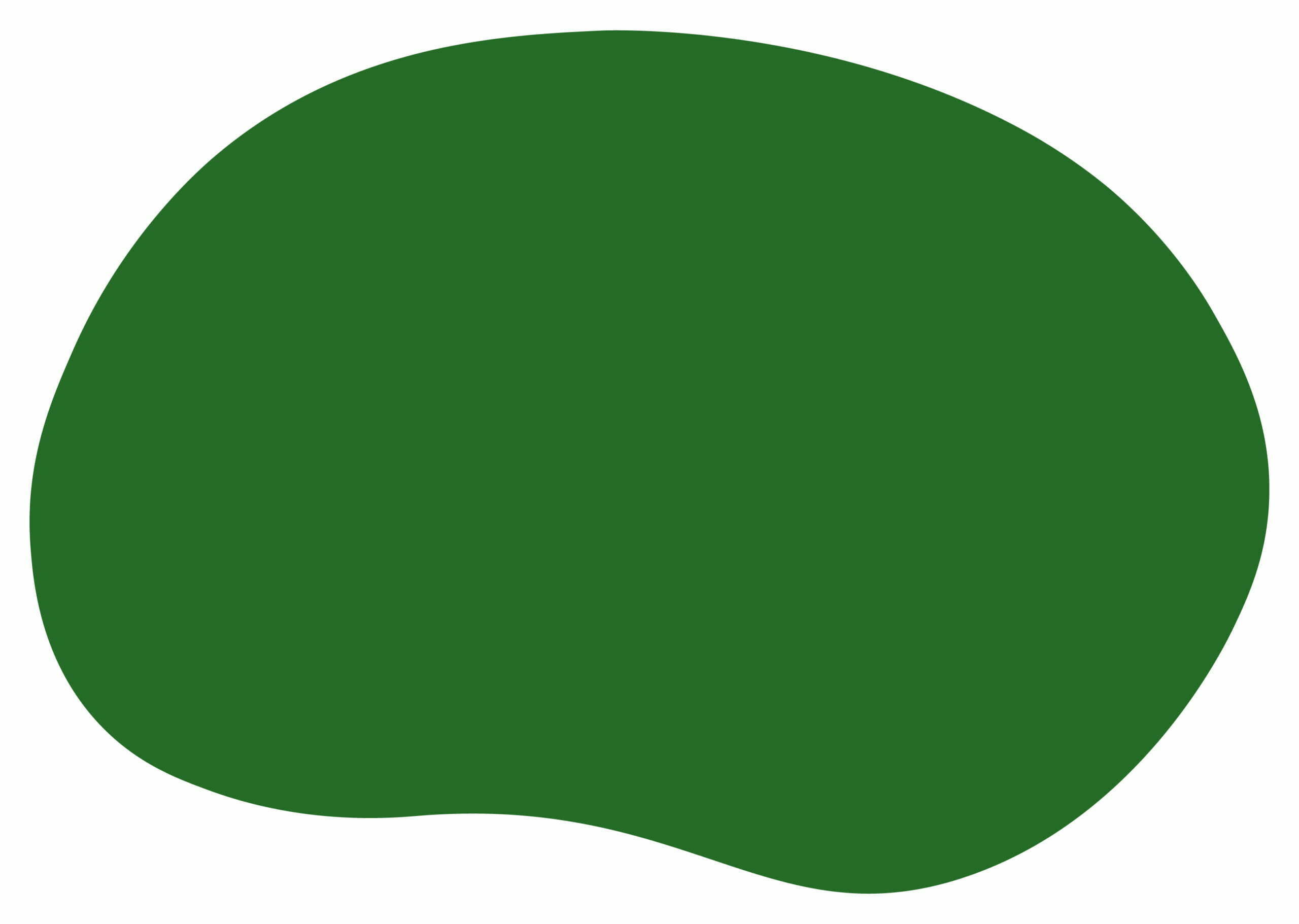
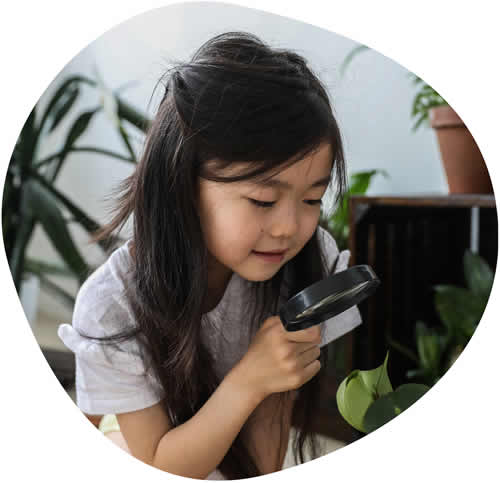
3 – 4 years
- Hops and stands on one foot up to 5 seconds
- Goes upstairs and downstairs without support
- Kicks ball forward
- Throws ball overhand
- Catches bounced ball most of the time
- Moves forward and backward
- Uses riding toys
- Shows interest in new experiences
- Cooperates/plays with other children
- Plays “mom” or “dad”
- More inventive in fantasy play
- Dresses and undresses
- More independent
- Often cannot distinguish between fantasy and reality
- May have imaginary friends or see monsters
- Copies square shapes
- Draws a person with 2 to 4 body parts
- Uses scissors
- Draws circles and squares
- Begins to copy some capital letters
- Feeds self with spoon
- Understands the concepts of “same” and “different”
- Has mastered some basic rules of grammar
- Speaks in sentences of 5 to 6 words
- Asks questions
- Speaks clearly enough for strangers to understand
- Tells stories
- Correctly names some colors
- Understands the concept of counting and may know a few numbers
- Begins to have a clearer sense of time
- Follows three-part commands
- Recalls parts of a story
- Engages in fantasy play
- Understands causality (“I can make things happen”)
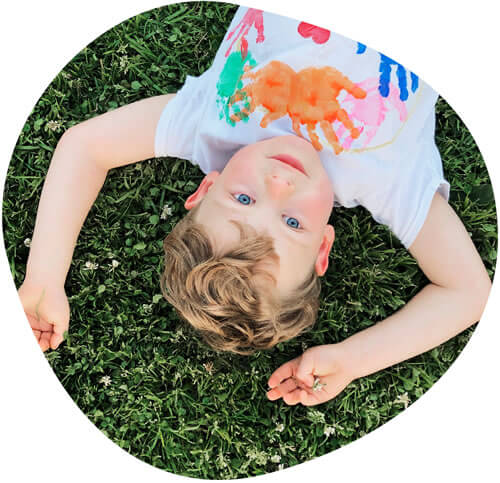
Kindergarten Educational Program
Your child will be taught fine motor skills, reading, writing and math readiness. They will be able to retell stories and, in the process learn to sequence. Simple analogies are also introduced to expand critical thinking skills.
What Does Kindergarten Readiness Mean?
How to recite the alphabet? Count to 10? Tie shoelaces? Or is there something more to this puzzle?
For many parents, the first 5 years seem to fly by overnight. Before you know it, it’s time for kindergarten! A high-quality pre-k curriculum can help ensure that your child is ready for success in school and in life.
But what, exactly, is kindergarten readiness?
According to one early childhood expert, kindergarten readiness is an interactive concept. It includes a child’s individual level of development across multiple domains and a school’s readiness to address every child’s unique learning needs.
One Size Doesn’t Fit All
- Every child is unique. What if your child picks up a large vocabulary quickly, but takes a little longer to get the hang of addition and subtraction? No problem. Children develop at varying rates, and every
child will begin kindergarten with a different set of needs. - What is your state’s kindergarten entry age? Many states require a child to turn 5 before September 1 to enter kindergarten, but exact cutoff dates vary by state. What if your child has a late summer birthday that would make them the youngest in the class? That’s okay! A high-quality school will be prepared to serve kids with varying levels of development, including those who are younger than their peers.
Consider Overall Development
Academic skills are important, but don’t just focus on how many questions your child can answer correctly! Kindergarten readiness includes overall development across many different areas.
It also bears repeating: By the first day of kindergarten, most kids will not have “mastered” all of these skills. Some will have made significant progress in some areas while still needing work in other domains.
- Physical development. This isn’t just about how tall your child is. Physical development includes gross motor skills like jumping, dancing or hopping one foot, as well as fine motor skills like writing and painting. Kindergarteners will also be expected to be independent with self-care routines like handwashing, getting dressed and using the restroom.
- Social skills. Kindergarteners should be able to develop positive relationships with peers and know how to ask adults for help. Other important social skills include taking turns, sharing, and showing concern for the feelings of others. It’s also fine if your child is not a big talker. It’s normal for some kids to be outgoing while others are more reserved in social settings.
- Emotional skills and self-regulation. Closely related to social skills, emotional development includes the ability to express one’s feelings appropriately. Kindergarteners are generally expected to pay attention, follow simple directions, and participate in activities appropriately.
- Language and literacy. By kindergarten, your child will have an everexpanding vocabulary. Other kindergarten-level language milestones include recognizing letters, reading short sentences and writing simple words including one’s own name!
- Math and science skills. Kindergarteners will be expected to be able to count — but it’s normal if some kids can go higher than others! Other important math and science skills for kindergarten include naming numbers, recognizing number shapes, measuring and comparing small quantities, and recognizing spatial and positional relationships.
- General cognitive skills. Learning isn’t just about memorizing facts and formulas! By the time they start kindergarten, most kids have also started developing intellectual skills that will help them in all subjects. These include problem-solving, exploring cause and effect, working with patterns, sorting objects and reasoning abilities.